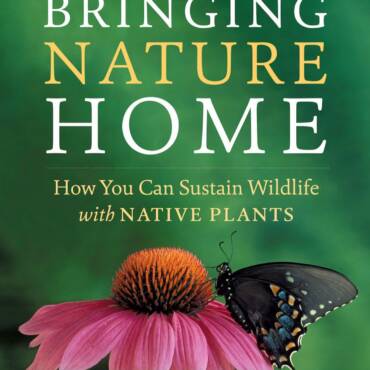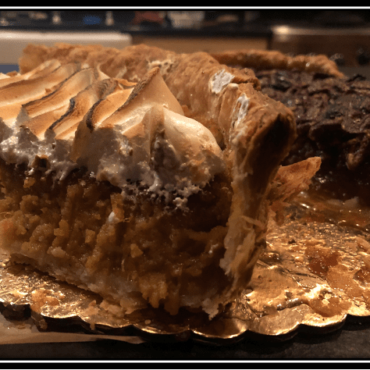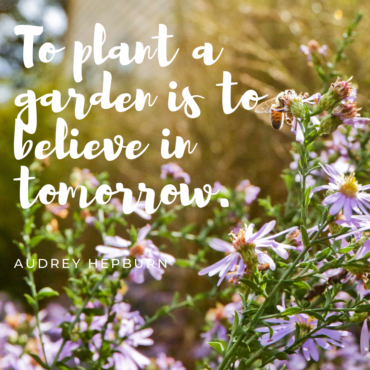 Green Mulch? Yes, Green Mulch!
Green Mulch? Yes, Green Mulch!
Not because Saint Patrick’s Day is around the corner, and not because we’ve given up all our principles and recommend using one of those dyed mulches that leach scary chemicals into the ground…
‘Green mulch’ isn’t shredded hardwood that is colored green- it’s green plants used in place of shredded wood mulch. Mulching is an important practice in sustainable land care and mulching with plants instead of wood is a great way to get the benefits of mulching plus more.
Why mulch at all?
A 2-3” layer of mulch helps retain soil moisture, keeps surface temperatures down, and helps to keep weeds from emerging in empty spaces. As the cliché goes: ‘Nature abhors a vacuum’ and voids at the ground layer are easy opportunities for weeds to enter. Mulching is part of a 5-part organic land care practice that keeps plants healthy without chemicals. Read more about these 5 practices below.
Why Green Mulch instead of traditional mulch?
Beyond the appeal of more plants and more color in the landscape, Green Mulch can be a more economical way to maintain your garden. Instead of adding mulch year after year, plants fill the voids that mulch traditionally fills; for the gardener that means less weeding and less mulch to buy and apply. We recommend reading Thomas Rainer and Claudia West’s new book: Planting in a Post Wild World for more information about plant communities, Green Mulch and vertical layering.
How to try it?
If you are interested in testing Green Mulch in your garden this year, let us know. During the early spring, Backyard Bounty is offering our clients the opportunity to substitute a flat of 32 or 50 Green Mulch plants for a cubic yard of shredded pine mulch. An ideal spot to trial Green Mulch in your garden would be under shrubs that don’t have a ground-hugging layer of plants – a bank of azaleas, for example, or a bed with screening trees that have yet to fill in are both good places to begin.
What are some good Green Mulch Plants?
Some of our favorite green mulch plants to select from are listed below. If you are not familiar with these plants, please let us help you select those that would be ideal for your garden situation:
- Heath Aster
- Wild Geranium
- Barren Strawberry
- Meehan’s Mint
- Golden Groundsel
- Creeping Phlox
- Creeping Raspberry
- Cherokee Sedge
- Palm Sedge
- Blue Wood Sedge
- Wavy Hair Grass
- Purple Love Grass
- Poverty Rush
5 Best Practices of Organic Land Care
Our gardens are an opportunity to make both our lives and the environment better by encouraging pollinators, creating wildlife habitat, keeping storm water from running into our streams, providing us with fresh vegetables, and beautiful outdoor living spaces. However, if we install plants to nurture wildlife and then spray our gardens with weed killer or over fertilize we lose many of the benefits of these sustainable practices.
At Backyard Bounty, we look at garden maintenance the way we look at taking care of our health. We stay well by eating right, practicing good hygiene, getting enough water, protecting ourselves from extreme weather and getting enough rest. Our landscape maintenance program takes these 5 elements and adapts them for the garden. When we take care of ourselves, we don’t have to rely on medication to lead a healthy, happy life. Likewise, plants growing in healthy soil perform at their best and are better able to stand up to disease, pests and weather without chemical support.
What does this kind of garden maintenance involve? Five things:
| What | Why | When |
| Pruning | Keeps plants healthy by improving air flow, removing damage that may draw harmful pests, and getting rid of disease to prevent spreading | Mostly in late winter/early spring, Any time for dead or diseased branches. Some plants should be pruned in late spring/ early summer |
| Natural process fertilization | Feeds plants by keeping the soil healthy and alive with compost tea applications | Spring and fall |
| Mulching | Retain moisture, inhibit weed growth | Early spring |
| Periodic tending | Keep the garden orderly so you enjoy it Patrol for unwanted pests and disease |
A monthly visit, April- September |
| End of season clean up and winter mulching | Remove excess leaves on garden beds and lawns to avoid matting and top-dress beds with compost to feed the soil over the winter | November or December |




